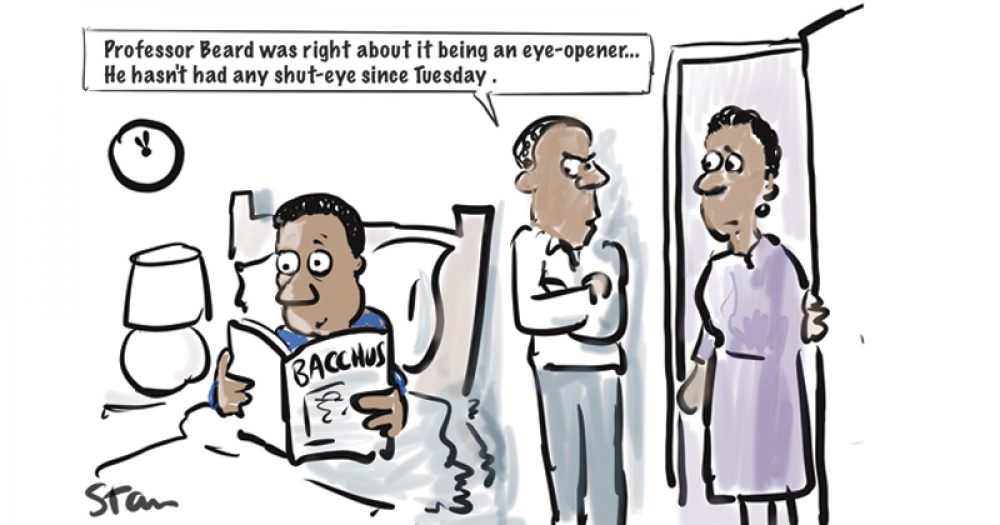Latin and classics should be taught “in every primary school” with ancient Greek added at secondary level, says a leading academic.
Professor Dennis Hayes, from the University of Derby, warns that Latin and classics, like modern languages, are becoming “the preserve of public schools”, and that the revival of classics in state schools would “transform education”.
His claims come as the government prepares to force independent schools to support state sector teachers to deliver such subjects. As part of its green paper reforms, the Department for Education wants to make independent schools do more to justify their charitable status, which gives them tax breaks.
In its consultation document, the department highlights the work of the York Independent-State School Partnership, which provides Latin GCSEs to maintained school pupils and night training for teachers as an example of good practice.

But Hayes urged state schools themselves to offer a classical education.
“As a minimum Latin and classics should be taught in every primary school and continued into secondary school with the addition of ancient Greek,” said Hayes, adding that the subjects could be offered by state schools through the Classics for All programme or the use of retired Latin teachers.
He said he wants to “start a debate” about his proposals in his home county of Derbyshire. It follows critical comments he made at the Commons education committee’s purpose of education conference last week.
“If you go to Derbyshire schools, the kids are basically not learning anything.
“There’s these lovely kids in Shirebrook for instance. They’re great kids, but they’re not being taught anything. They would love Latin.”
Hayes said the teachers in his teacher training session would “hate” the idea of a move to teach classics in all schools, because they “think the only thing you need is Google. They confuse information with knowledge”.
We have high-flyers like other areas, but Latin doesn’t make futures
But Marian Stockdale, a Labour politician who represents Shirebrook on Derbyshire County Council, said Hayes was “out of touch” with schools in the area. Results for the county were good “on the whole”.
“Latin would more than likely be the last thing many will want to take up,” she said, calling the proposals in the green paper “outdated, antiquated and completely out of touch”.
“I can’t see schools falling over themselves to take up the offer in the working-class areas. We have high-flyers like other areas, but Latin doesn’t make futures.”
Mary Beard, the renowned University of Cambridge classical scholar, told Schools Week there was “no magic bullet”, and that the education community needed to be “careful about putting all eggs in one basket”.
“There are all kinds of subjects that raise children’s aspirations. That said, Latin, Greek and classical civilisation can be an eye-opener.
“They offer all kinds of new ways of understanding the modern world as well as the ancient, and they are a wonderful way of exploring foundational literature and ideas, without having to ask the way to the train station in them.”








No need to involve private schools. Grants are available from Classics For All for state schools wanting to teach Latin. The Iris Project also provides resources for schools interested in the Classics including the Iota magazine aimed at pupils from 8+.
That said, introducing Latin or Ancient Greek shouldn’t be viewed as automatically raising standards. And there aren’t enough teachers to introduce these subjects nationally.
‘If you go to Derbyshire schools, the kids are basically not learning anything. There’s these lovely kids in Shirebrook for instance. They’re great kids, but they’re not being taught anything.’
What an ignorant comment. Just checked school performance tables for primary schools in Shirebrook: 5 Outstanding, 14 Good, 1 Requires Improvement, None are Inadequate. Unless inspectors are having the wool pulled over their eyes, of course.
As a teacher of Classics I would welcome any move to increase the provision of Latin in schools. There is certainly a place for beginners’ Latin and classical civilisation in primary schools, though the practicalities of teacher availability and curriculum space would make this a difficult call. Classical Greek, on the other hand, has always been a handmaid to Latin in this country, ever since the language entered English schools at the end of the fifteenth century. (See: ‘Teaching Classics in English Schools 1500-1840’, by Matthew Adams.) Greek has never taken a firm hold in schools. However much one might long for Greek to be taught, finances, curriculum space and teacher availability are only a few of the obstacles to be faced. Keep the Latin going, would be my advice, and Greek can perhaps step into the light.
Students need to develop their vocabulary skill and the only effective way to do this is through teaching Latin and Grreek . Delivered in a modern #fastfocusedfun way I find all students and their teachers really enjoy learning the Classics because they instantly start looking at vocabulary differently. They begin to make new vocabulary connections across all curriculum areas. I love training teachers and students alike across the UK .
‘The only effective way’? How, then, can you explain how millions of people in England have managed to acquire English vocabulary without learning Latin or Ancient Greek? I haven’t noticed many people talking in mono-syllabic grunts.